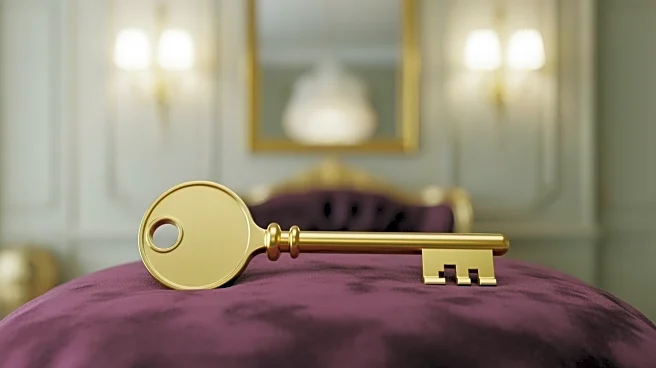What's Happening?
Realtor.com's recent report highlights a significant increase in the cost of luxury homes over the past decade. As of 2025, the threshold for a luxury home has risen by more than 60% to $1.3 million, marking
the top 10% of the most expensive homes nationwide. The top 5% of homes for sale start at $2 million, while the top 1% begin at $5.4 million. These figures are substantially higher than the national average median listing price of $430,000. The report indicates that the definition of luxury has shifted dramatically, with a million-dollar home no longer representing the luxury marker it once did. In many areas, high-end homes can rise significantly above the typical home price, reflecting exclusivity and relative standing in local markets.
Why It's Important?
The rising cost of luxury homes has broad implications for the real estate market and economic stakeholders. As luxury homes become more expensive, they may become less accessible to a wider range of buyers, potentially impacting market dynamics and the distribution of wealth. This trend could lead to increased demand for more affordable housing options, influencing public policy and urban planning. Additionally, the shift in luxury home pricing may affect investment strategies for real estate developers and investors, as they navigate changing consumer expectations and market conditions. The report underscores the evolving nature of luxury in real estate, which could have long-term effects on housing affordability and economic inequality.
What's Next?
The continued rise in luxury home prices may prompt stakeholders to reassess their strategies. Real estate developers might focus on creating more diverse housing options to cater to varying consumer needs. Policymakers could consider implementing measures to address housing affordability and ensure equitable access to housing. Additionally, the real estate market may see shifts in investment patterns, with investors seeking opportunities in emerging markets or alternative housing solutions. As the definition of luxury evolves, stakeholders will need to adapt to changing market conditions and consumer preferences.
Beyond the Headlines
The changing landscape of luxury real estate raises ethical and cultural questions about housing accessibility and economic disparity. As luxury homes become increasingly exclusive, there may be growing concerns about the social implications of wealth concentration and the impact on community diversity. The trend also highlights the cultural significance of luxury as a status symbol, influencing consumer behavior and societal values. Long-term shifts in the real estate market could lead to broader discussions about sustainability, urban development, and the role of luxury in shaping economic and social structures.










